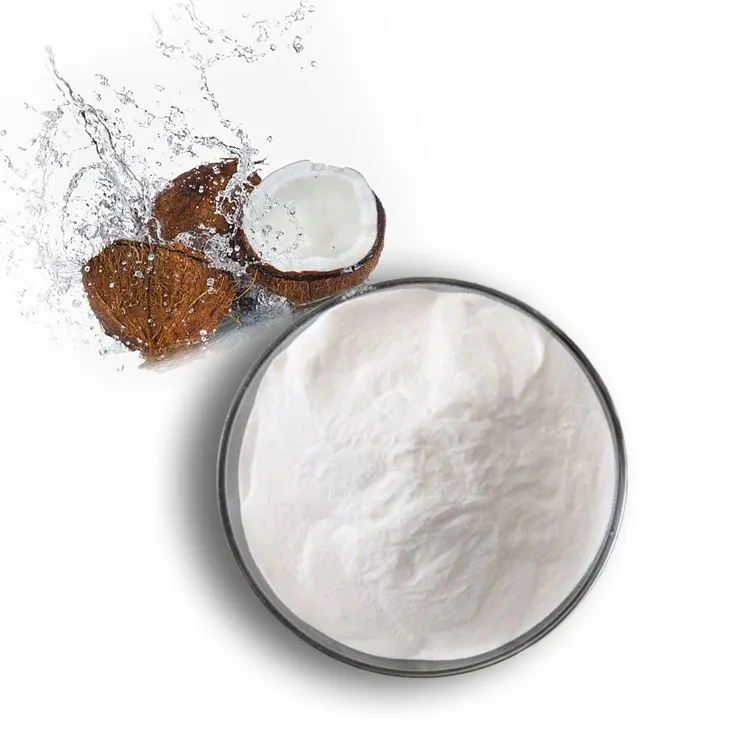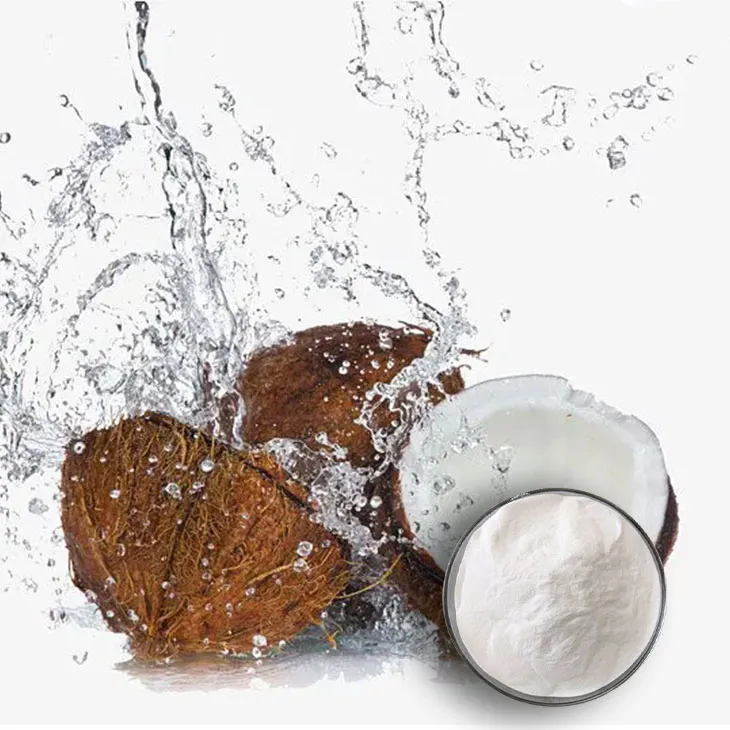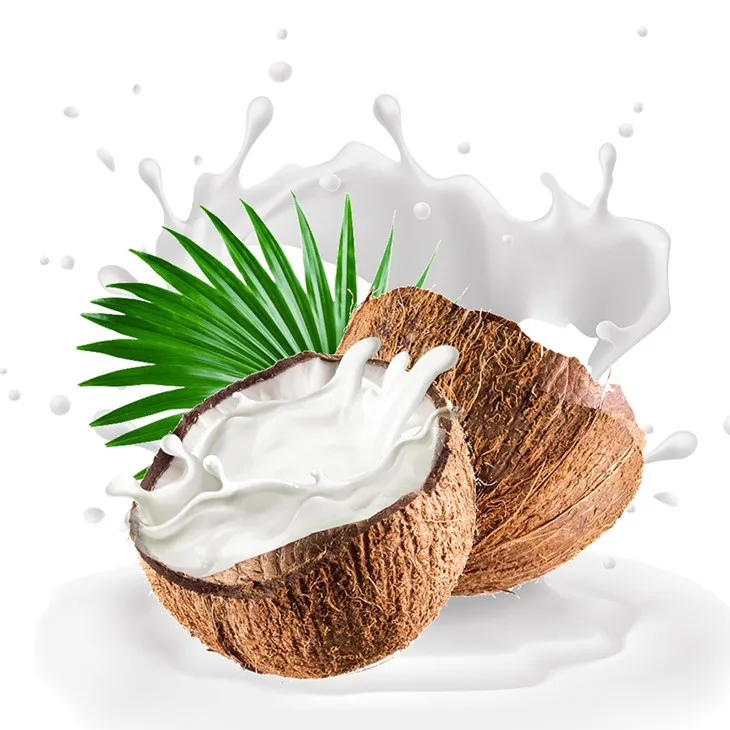- 0086-571-85302990
- sales@greenskybio.com
The best sources of natural coconut water powder.
2024-12-02

Introduction
Natural Coconut Water Powder has gained significant popularity in recent years due to its numerous health benefits and versatile applications. Coconut water, in its natural form, is a refreshing and nutritious beverage that is rich in electrolytes, vitamins, and minerals. When processed into powder form, it becomes a convenient option for various uses, such as in sports nutrition, culinary creations, and as a natural hydration supplement. However, not all sources of natural Coconut Water Powder are equal. In this article, we will explore the best sources, taking into account factors such as freshness, purity, and sustainability.

Freshness: A Key Factor
1. Direct from Coconut Farms in Tropical Regions
-
Tropical regions are the natural habitats of coconuts. Countries like the Philippines, Indonesia, and India are major coconut - producing nations. When the Coconut Water Powder is sourced directly from these areas, there is a higher likelihood of obtaining fresh - tasting powder.
-
On - site processing near the coconut farms can help to preserve the freshness of the coconut water. Immediate extraction and drying techniques can be employed to turn the fresh coconut water into powder without significant loss of nutrients or flavor.
-
Cold - pressed coconut water is a method that involves extracting the water from coconuts without the use of excessive heat. This helps to maintain the integrity of the nutrients and the freshness of the coconut water.
-
When this cold - pressed coconut water is then converted into powder, it often retains a more natural and fresh flavor compared to other methods of extraction. It also helps to preserve the natural enzymes and electrolytes present in the coconut water.

Purity: Ensuring a High - Quality Product
1. Organic Coconut Water Powder
-
Organic sources of coconut water powder are becoming increasingly popular. These are sourced from coconuts that are grown without the use of synthetic pesticides, fertilizers, or genetically modified organisms (GMOs).
-
By choosing organic coconut water powder, consumers can be assured of a purer product that is free from harmful chemical residues. Organic farming practices also tend to promote soil health and biodiversity, which can indirectly contribute to the overall quality of the coconut water.
-
The simplest and purest form of coconut water powder is one that contains only coconut water as its ingredient. Some products on the market may contain added sugars, flavors, or preservatives, which can detract from the purity of the coconut water powder.
-
When looking for the best source, it is important to read the labels carefully and choose a product that is made from 100% pure coconut water with no added extras. This ensures that the consumer is getting the full benefits of the natural coconut water in powder form.

Sustainability: For a Greener Future
1. Sustainable Coconut Farming Practices
-
Many coconut - producing regions are now adopting sustainable farming practices. This includes techniques such as intercropping, where coconuts are grown alongside other crops. For example, in some areas, coconuts are planted with legumes. The legumes help to fix nitrogen in the soil, reducing the need for synthetic fertilizers.
-
Another sustainable practice is the use of natural pest control methods. Instead of relying on chemical pesticides, farmers may use natural predators or plant - based repellents. Sourcing coconut water powder from farms that follow these sustainable practices helps to support the long - term viability of coconut production and the environment.
-
Fair - trade certification ensures that coconut farmers receive a fair price for their products. This not only helps to improve the economic well - being of the farmers but also encourages sustainable production methods.
-
When consumers choose fair - trade certified coconut water powder, they are contributing to a more equitable supply chain. This also often means that the farmers are more likely to invest in sustainable farming practices as they have a more stable income.
Comparing Different Brands and Suppliers
1. Reputation and Reviews
-
One of the best ways to determine the quality of a source of coconut water powder is by looking at the brand's reputation. Brands that have been in the market for a long time and have a good track record are more likely to provide high - quality products.
-
Online reviews can also be a valuable source of information. Customers often share their experiences with different products, including aspects such as taste, purity, and freshness. Reading these reviews can help consumers make an informed decision when choosing a source of coconut water powder.
-
The best brands are transparent about where they source their coconuts and how they process the coconut water into powder. This includes providing information about the origin of the coconuts, whether they are organically grown, and the methods used for extraction and drying.
-
Transparency also extends to quality control measures. Brands that are open about their testing procedures and quality standards are more likely to be reliable sources of natural coconut water powder.
Conclusion
When looking for the best sources of natural coconut water powder, it is important to consider factors such as freshness, purity, and sustainability. Sources that are directly from tropical coconut farms, use cold - pressed methods, are organic and single - ingredient, follow sustainable farming practices, and are fair - trade certified are likely to be of high quality. Additionally, comparing different brands based on reputation, reviews, and transparency can help consumers make the best choice. By choosing the right source of natural coconut water powder, consumers can enjoy the many benefits of this natural product while also supporting a more sustainable and ethical industry.
FAQ:
What are the main regions known for high - quality natural coconut water powder sources?
Some of the main regions are Southeast Asia, including countries like Thailand and the Philippines. These areas have a favorable climate for coconut growth. The coconuts here are often of good quality due to the abundant sunlight and suitable rainfall. Also, in parts of South America such as Brazil, coconuts are grown in large quantities. The natural environment in these regions provides coconuts with rich nutrients, which is beneficial for the production of high - quality coconut water powder.
How can we ensure the freshness of coconut water powder from its source?
To ensure freshness, it is important that the coconuts are harvested at the right time. Coconuts should be picked when they are fully mature but not overripe. After harvesting, the processing should be carried out quickly. The extraction of coconut water from the coconut should be done in a hygienic environment and then dried into powder as soon as possible. Good storage conditions also play a role. Storing the powder at a proper temperature and humidity level helps maintain its freshness.
What makes a source of coconut water powder pure?
A pure source of coconut water powder comes from coconuts that are free from contaminants. This means that the coconuts are grown in areas without excessive pollution, such as from industrial waste or pesticides. During the processing, no artificial additives or preservatives should be added. The manufacturing process should be strictly controlled to ensure that only pure coconut water is dried into powder. High - quality filtration during extraction can also help remove any impurities and ensure the purity of the final product.
How is sustainability related to the sources of coconut water powder?
Sustainability in the context of coconut water powder sources is crucial. Coconut plantations should be managed in an environmentally friendly way. This includes proper watering and soil management to ensure the long - term health of the coconut trees. Also, fair trade practices are part of sustainability. Ensuring that the farmers who grow the coconuts are paid fairly for their produce encourages them to continue sustainable farming methods. Additionally, using renewable energy sources in the processing of coconut water powder can contribute to overall sustainability.
Can different coconut varieties affect the quality of coconut water powder?
Yes, different coconut varieties can affect the quality. Some coconut varieties may have a higher water content or a different nutrient profile. For example, certain varieties may be richer in electrolytes or have a sweeter taste. The quality of the coconut water powder made from these different varieties can vary in terms of taste, nutritional value, and texture. Breeders and producers often select specific coconut varieties based on the desired characteristics of the final coconut water powder product.
Related literature
- The Quality and Sources of Coconut - Based Products"
- "Sustainable Sourcing of Tropical Fruit Products: The Case of Coconut"
- "Coconut Water Powder: Production, Quality and Market"
- ▶ Hesperidin
- ▶ citrus bioflavonoids
- ▶ plant extract
- ▶ lycopene
- ▶ Diosmin
- ▶ Grape seed extract
- ▶ Sea buckthorn Juice Powder
- ▶ Beetroot powder
- ▶ Hops Extract
- ▶ Artichoke Extract
- ▶ Reishi mushroom extract
- ▶ Astaxanthin
- ▶ Green Tea Extract
- ▶ Curcumin Extract
- ▶ Horse Chestnut Extract
- ▶ Other Problems
- ▶ Boswellia Serrata Extract
- ▶ Resveratrol Extract
- ▶ Marigold Extract
- ▶ Grape Leaf Extract
- ▶ blog3
- ▶ blog4
-
The best lemon juice powder in nature.
2024-12-02
-
Organic Vitamin K2 Powder Suppliers
2024-12-02
-
Bulk purchase of L - tyrosine.
2024-12-02
-
Vitamin K2 Manufacturers
2024-12-02
-
100% Pure Natural Rutin.
2024-12-02
-
Chinese Citrus Bioflavonoid Suppliers.
2024-12-02
-
Hops Extract
2024-12-02
-
Artichoke Leaf Extract
2024-12-02
-
Buckthorn bark extract
2024-12-02
-
Peppermint Extract Powder
2024-12-02
-
Saponin Extract
2024-12-02
-
Chaste Berry Extract
2024-12-02
-
Thunder God Vine Extract
2024-12-02
-
Pomegranate Extract
2024-12-02
-
Apricot Powder
2024-12-02
-
Alfalfa Meal
2024-12-02





















